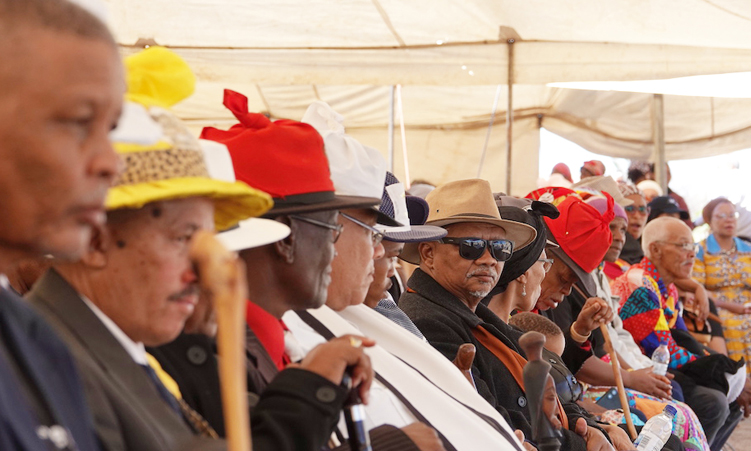WOERMANN Brock has stopped a District Labour Court hearing from proceeding because the company was unable to identify some of the complainants, who were dismissed following a 2001 strike.
The company’s lawyers, GF Koepplinger Legal Practitioners, rushed to the High Court for an urgent interdict against Magistrate Lea Shaanika on Wednesday, as the case was being heard in the District Labour Court in Katutura. In an affidavit filed with the High Court, Woermann Brock’s human resources manager, Hermanus Johannes Louw, said the company only knew of 44 former employees who have taken them to court while the list at the Labour Court had 94 names.He questioned the accuracy of the list and said they had been informed that seven of the complainants had died since their dismissal in 2001.The company wanted Shaanika, in this case the chairperson of the District Labour Court, to postpone the hearing until they have identified the additional names as people who had worked for the company and were dismissed for an illegal strike.Such identification would include a study of the video of the two-day strike as well as getting some data of staff working for them seven years ago.Louw said identifying all complainants was “time consuming” and the company was not in a position to proceed with the case against unknown complainants.However, Shaanika refused to grant a postponement of the case, which was set down for the whole of this week.She said the unnamed 55 people were complainants for the purposes of the proceedings and that their complaints were validly lodged.”The applicant is not in a position to deal with the case for these extra people and the indication that I gather from the first respondent (Shaanika) is that she is going ahead to make a ruling relating to their complaints as well,” Louw wrote in his affidavit.He argued that it was better to postpone the case before the trial started.”No evidence has been led.Should the proceedings, which I submit are defective, be allowed to continue and a review application be brought at a later stage, the cost will be wasted and the applicant will be prejudiced.Witnesses that will testify now will have to testify again in future should the proceedings be set aside,” he said.According to Louw, the 55 unnamed complaints did not lodge their complaint within the prescribed 12-month period and the company was likely to suffer an additional loss of around N$11 million – up from N$4 million to N$15 million.He said any postponement would not be detrimental to the former employees since the case started in 2002 and has already been postponed several times.Judge Louis Muller granted a “stay order” – meaning that the Labour Court case must be stopped.In an affidavit filed with the High Court, Woermann Brock’s human resources manager, Hermanus Johannes Louw, said the company only knew of 44 former employees who have taken them to court while the list at the Labour Court had 94 names.He questioned the accuracy of the list and said they had been informed that seven of the complainants had died since their dismissal in 2001.The company wanted Shaanika, in this case the chairperson of the District Labour Court, to postpone the hearing until they have identified the additional names as people who had worked for the company and were dismissed for an illegal strike.Such identification would include a study of the video of the two-day strike as well as getting some data of staff working for them seven years ago.Louw said identifying all complainants was “time consuming” and the company was not in a position to proceed with the case against unknown complainants.However, Shaanika refused to grant a postponement of the case, which was set down for the whole of this week.She said the unnamed 55 people were complainants for the purposes of the proceedings and that their complaints were validly lodged.”The applicant is not in a position to deal with the case for these extra people and the indication that I gather from the first respondent (Shaanika) is that she is going ahead to make a ruling relating to their complaints as well,” Louw wrote in his affidavit.He argued that it was better to postpone the case before the trial started.”No evidence has been led.Should the proceedings, which I submit are defective, be allowed to continue and a review application be brought at a later stage, the cost will be wasted and the applicant will be prejudiced.Witnesses that will testify now will have to testify again in future should the proceedings be set aside,” he said.According to Louw, the 55 unnamed complaints did not lodge their complaint within the prescribed 12-month period and the company was likely to suffer an additional loss of around N$11 million – up from N$4 million to N$15 million.He said any postponement would not be detrimental to the former employees since the case started in 2002 and has already been postponed several times.Judge Louis Muller granted a “stay order” – meaning that the Labour Court case must be stopped.
Stay informed with The Namibian – your source for credible journalism. Get in-depth reporting and opinions for
only N$85 a month. Invest in journalism, invest in democracy –
Subscribe Now!










